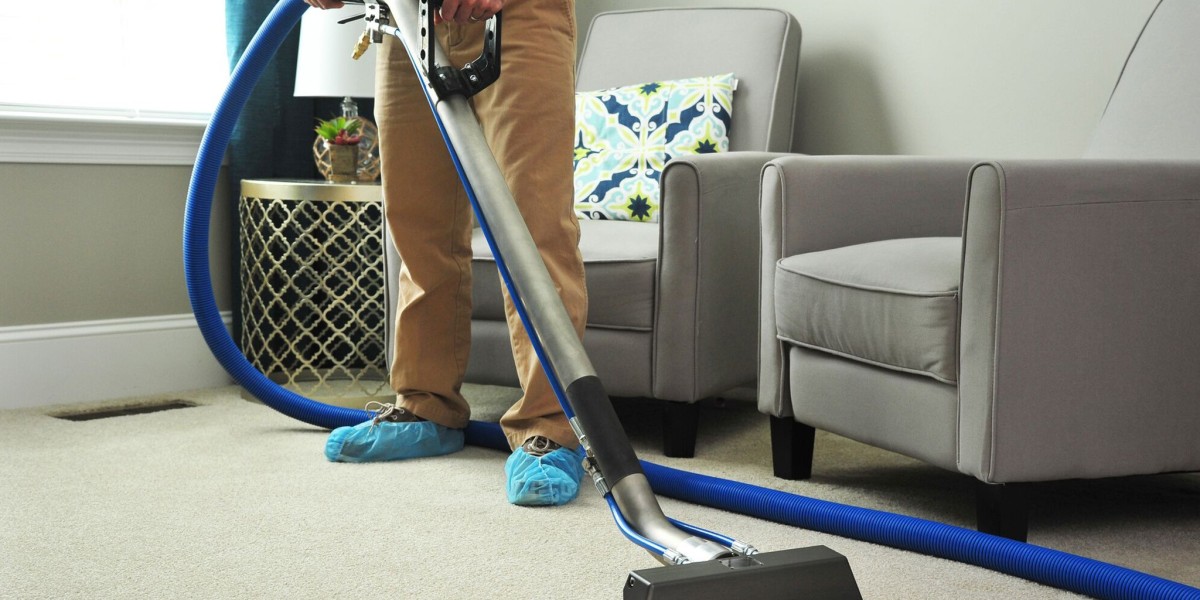
Gross Lease vs. Net Lease: How to Decide
Have legal questions about realty?
Excellent
Jennie L. Phipps
Christina Aryafar
Contents
Finding an area and negotiating a lease is a vital early action in the formation and development of a company. Whether you choose a gross or net lease is an important choice because process.
Most business genuine estate leases are really different from the property leases that many people sign throughout their lives. Residential leases are largely non-negotiable at a fixed rent quantity. You pay the real rent the property owner needs, and you sign the lease, accepting the terms the residential or commercial property owner has actually detailed.
Negotiating industrial lease arrangements is a lot more of a give-and-take situation, consisting of not just just how much the payment will be however likewise how every part of the lease will be structured. Besides deciding the kind of lease, you consider how the residential or commercial property can be used and who will pay for what. That includes whether the renter or the property owner covers big residential or commercial property expenditures like energy expenses, residential or commercial property taxes, and insurance coverage costs, plus extra costs
Within the 2 classifications of commercial leases-gross lease and net lease-there are plenty of options for settlement. The landlord and the potential occupant sit down and hash them out. These settlements can be very made complex, however having a company attorney in your corner will assist you protect the very best terms.
Start with the fundamentals
The base rent in commercial lease structures is the cost per square foot multiplied by the square footage of the rental space. How the property manager determines that area can be crucial. Does the landlord include the corridor? What about the stairwell? Unless you have a sharp eye for this kind of information, hiring an attorney to assist define the rental location can save cash on the repaired lease amount before you get to the remainder of the details.
Next, think about how other important and variable property-related costs will be paid. These include utilities, residential or commercial property taxes, insurance expenses, and upkeep. How will renters and the proprietor share costs for the building's common areas, including parking, lobbies, landscaping, restrooms, and extra costs? Will the property manager pay for constructing maintenance or split expenses with the tenant, or will the tenant pay the whole expense of residential or commercial property maintenance and other building costs?
These are fundamental concerns, and the responses to these questions will lead you to choose the kind of lease you're ready to sign and how that lease should be structured.
In a gross lease, the occupant pays only the base rent. The landlord is accountable for spending for whatever else. In a lot of cases, the lease will be considerable, reflecting the landlord's costs, however the renter will pay extremely bit above that agreed-upon lease, if anything at all. This sort of predictability can be great for a small or startup company.
This might be the lease for you if you're a brand-new company, and you don't know whether the area is right and even if your organization will endure. You probably can work out a short-term gross lease with the right of first refusal to restore. This gives you some stability plus a little wiggle space. You can leave the lease quickly if you need to, or if things go well, you can renegotiate for a lease that will serve your growing company better.
What is a net lease?
Signing a net lease is a lot like purchasing a residential or commercial property. The lease payment includes the base rent plus at least among these categories: residential or commercial property taxes, upkeep, and insurance.
In a single lease (N), the occupant pays base or fixed rent plus among the expense classifications. In a double net lease (NN), the renter pays the base rent plus 2 of these classifications. In a triple net lease (NNN), the tenant pays base rent and all three classifications of costs.
Triple web leases are most common in longer leases-10 years or more. They are particularly common in leases of retail areas or workplace rentals where the occupant will manage the entire office building.
Gross lease vs net lease: Full comparison
Here are some things to consider about gross vs. net leases. Understanding these basics is necessary, even if you have a good attorney on your side.
Key distinctions in between gross and net leases
- A tenant with a net lease contract pays a lowered base lease compared to a gross lease, a decrease that must be huge enough to balance out the expense of paying the other expenditure allowances.
- Gross leases are typically for little areas. Net leases, triple net, in particular, are frequently for whole workplace buildings.
- Gross rents free an occupant from unpredictable operating expense, although customized gross leases can designate a few of those running costs to the renter. For circumstances, in customized gross leases, tenants can be responsible for paying a few of the utility costs or insurance costs but not others. In offers depending on customized gross leases, renters and property owners need to agree on how operating costs will be paid. Will the proprietor pay whatever and recoup the expenses from the occupant, or will the occupant be responsible for paying directly?
- Because net leases featured lower base lease payments, the renter has more control over the other expenses. In a structure that has actually been well handled, upkeep and even residential or commercial property tax costs will be lower, and the occupant can work to keep them that way.
- A tenant with a triple net lease can sublease parts of the building that the business doesn't need at the minute. Those subleases will even more decrease the business expenses.
- Using a smart legal representative can make a distinction in any property settlement, however net leases-single net leases, double net leases, or triple net leases-are specifically complex, making involving an attorney very essential.
Gross lease pros and cons
Sometimes, picking a gross lease makes ideal sense and can be a big advantage. The occupant pays lease. That has to do with it. Other times, no matter how simple it appears, a gross lease can cost you. Here are some choice points:
- Gross rents supply predictable rent payments that cover everyday costs associated with leasing business residential or commercial properties. Budgeting is simpler with a gross lease because unforeseen operating expenses are not likely to pop up-at least not without some caution. This can be crucial for business owners and start-ups with restricted capital.
- From a property owner's viewpoint, gross leases are basic for prospective renters to comprehend. That can make it simpler for a property owner to attract a new occupant.
- At the very same time, a renter isn't usually locked into a long gross lease, so if the renter's needs change-the company grows quick or doesn't do well and needs to be shut down-having a gross lease that is easy to exit can be great.
- For a tenant, absence of financial control is the primary disadvantage. Landlords who fully service leases can increase rent-sometimes by a lot-and the occupant doesn't have much option.
- Costs associated with residential or commercial property taxes and insurance can skyrocket. There are methods that can be employed to help keep these operating costs under control, however they typically cost money upfront. A landlord with a full-service lease or other gross lease does not have much inspiration to invest money on decreasing business expenses.
Net lease advantages and disadvantages
While net leases are a bit more complicated, they work well for some companies. Here are aspects to remember.
- Triple internet (NNN) leases are extremely common and popular. Tenants like them since they use the capability to personalize the area to satisfy all type of requirements.
- If the area is too huge, the occupant can subdivide and utilize the income from that rental charge to pay part of the operating expenses.
- With aid from a smart tax advisor, a renter can subtract residential or commercial property taxes and take the insurance costs as overhead.
- From a proprietor's perspective, triple web or perhaps double net leases offer stable income without much work. With a great tenant, the money just keeps streaming.
- Maintenance expenses can be a difficulty for both property managers and renters. If the structure is in good condition, maintenance expenses won't be high, and the tenant benefits. But if there is a need for pricey and unanticipated repairs, the tenant can face business-threatening operating costs.
- While the property manager might be off the hook due to the fact that they don't pay maintenance expenses, this can backfire. A tenant who wants to avoid big expenditures can cut corners on the repair work or merely conceal them up until the expenses have actually installed and the lease has ended.
How to pick the right business lease type
The lease type you should choose is the one that will provide your company the biggest chance for success. Consider these aspects:
If you're a young business, then a gross lease might serve you well due to the fact that it will provide more monetary predictability. A gross lease is also much easier to understand. If you're not all set for a long-lasting lease and its monetary problem, a gross lease could be the right answer.
A net lease, with its numerous permutations, needs business sophistication. Companies that have steady money circulation and the ability to handle property along with handling their other business are the very best prospects for net leases, specifically triple net leases or their more stringent cousins, absolute net leases. Signing an NNN lease is comparable to purchasing a residential or commercial property. You'll be committing to a long-term lease-at least 10 years-and taking on the expense of upkeep and unsure insurance fees. Meanwhile, the property owner is responsible for extremely little.
But if you are a major seller or a large service company, for circumstances, a net lease, particularly a triple net lease, can offer you control, lower regular monthly costs, and low overhead, along with the ability to keep it that method. The fact that the property manager is accountable for really little is a good idea.
Before you make choices about gross and net leases, talk with a lawyer who comprehends these problems and who can thoroughly check out a lease and identify issues.
5 reasons to consult an industrial lease lawyer
While not legally required, it is highly advisable to engage a lawyer who focuses on this field when getting in into an industrial lease. Here are the leading reasons:
Commercial lease lawyers have negotiation abilities
An industrial lease is going to be among the biggest costs your company will sustain. It is necessary to not only get the best rate but also lease terms that secure you from unreasonable needs, including boosts in the rent that exceed what could be reasonably anticipated. Attorneys who concentrate on commercial leasing handle such leases daily. They understand what arrangements are great for your organization and which ones aren't. They comprehend what the proprietor is accountable for and how those obligations must be structured.
From a property manager's perspective, a smooth-running occupant relationship will make your organization and your life run more smoothly. And in the long run, you'll make more money.
Clarity: You comprehend what you are signing
Commercial leases can be filled with legal lingo. Anyone not well versed in this field of the law can get lost in the technical terms. A knowledgeable attorney can likewise determine loopholes and unclear stipulations that could leave you vulnerable.
You get key threat and conflict management advice
While we would all hope that the relationship between the property owner and the renter is favorable, it is sensible to recognize that disputes happen. A business realty residential or commercial property attorney can guarantee that the lease consists of provisions protecting the rights and interests of both celebrations. They can review the dispute resolution process and ensure it includes choices that in the case of a disagreement are reasonable to both sides.
Compliance and due diligence understanding is crucial
When you sign a lease, you must abide by state and local guidelines, including zoning laws, building codes, and particular regulations that use to your market. Some of these rules can be hard to comprehend or simple to ignore. A skilled lawyer can stroll you through the requirements and ensure that the lease complies.
Expertise conserves you cash and provides you an exit technique
If something goes wrong, you need an escape. A lawyer can assist you comprehend the effects of things you hope will never ever take place. The attorney can negotiate terms that enable for flexibility if things do not go as prepared and the organization has to relocate or close. In the long run, this is reason enough to work with a lawyer with industrial genuine estate know-how.
Can you work out the terms of a gross or net lease?
Yes. This is not an apartment lease. You can work out every part of an industrial area lease. Hiring an attorney to do this for you is especially important due to the fact that a lease is often the most substantial overhead a new company pays.
Are there concealed costs in gross or net leases?
Absolutely. A big gotcha in gross leases is office lease cost caps. The property owner pays all the expenditures up to a certain quantity. After that, you pay. It is a quickly misinterpreted and overlooked clause. When it comes to triple net leases, things called "administrative fees" get added. You wind up paying whatever plus an additional charge. These are by no indicates the only hidden expenses. This is why you need a lawyer to help you negotiate your lease.

Is a regular monthly lease better for brand-new businesses?

A regular monthly lease leaves a new service with massive uncertainty. It can result in a property owner raising the rent a punishing quantity. It can also mean the proprietor can end the lease with little or no caution. It might result in your business losing any enhancements you might have made to the residential or commercial property. Also, banks don't like month-to-month leases, and must you get financing to expand your organization or end up being a residential or commercial property owner, you may be denied since you don't have a steady lease.
Why is renting much better than purchasing?
Buying provides you more control over your residential or commercial property, but it binds your capital. It can leave you owning a residential or commercial property that no longer meets your requirements. This topic requires considerable analysis. Speak to both your lawyer and your accounting professional before you make this huge business realty choice.
What is the one thing a potential renter should do?
Find an educated business realty attorney who will work with you to work out the very best lease deal possible.
This short article is for educational purposes. This material is not legal guidance, it is the expression of the author and has not been evaluated by LegalZoom for accuracy or changes in the law.
You might also like
About.
Careers.
Contact.
Investors.
Press.
Partner with us.
Support
Order status.
Customer Care.
Speak with an attorney.
Join our attorney network.
Security.
Discover more
Business & Legal help resources.
Business Name Generator.
Legal form templates.
What is an LLC?
How to Start an LLC?
How to Change Your Name.
What is a DBA?
Most Profitable Small Business Ideas.
What Is a Registered Agent?
How to Conduct a Hallmark Search.
How to Learn if a Service Name is Taken?
© LegalZoom.com, Inc. All rights booked.
LegalZoom provides access to independent attorneys and self-service tools. LegalZoom is not a law practice and does not provide legal advice, except where licensed through its subsidiary law practice LZ Legal Services, LLC. Use of our services and products is governed by our Regards to Use and Privacy Policy.








